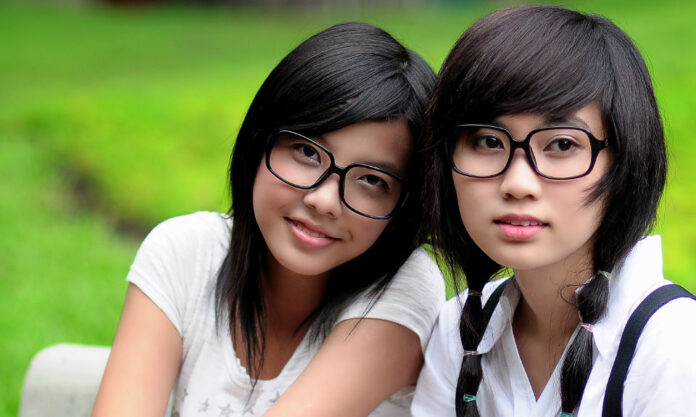Myopia, or shortsightedness, is a huge problem in China, particularly among teenagers. Little wonder therefore that there is no shortage of parents willing to try to do something about it, financially. And no shortage of those willing to take their money.
Those folks have been likely attracted by advertising slogans such as, “Golden eyes and silver teeth; eye care means spending money” (金眼银牙,护眼就是花钱), in order to brainwash parents in their sales’ pitch. Many also like to remind that maintaining eyesight is a “long-term process”, in efforts to persuade parents to continue to invest.
One lady perhaps taken in by such claims was Ms. Wang, whose daughter attends primary school in Taiyuan of Shanxi Province. Last year, the young girl began to have trouble seeing the blackboard in class, reports Nanjing Daily.
Wang took her to a vision-care centre near her home, which claimed that through acupressure, her daughter’s prescription can be improved from -5.0 to -4.5. The girl’s mother wasted no time on purchasing a massage card for three courses of treatment, each priced as high as ¥3,800.
After half a year of the massage treatment, Wang took her daughter to a local hospital for an independent review. It was found that the girl’s vision had become worse, not better.
Wang also said the centre had been advising parents not to go to hospital, saying that wearing glasses will also make vision worse. Instead, they should purchase three courses of treatment, plus accompanying eye-care products, costing nearly ¥20,000.
Those who parted with the 20 grand also reported a worsening of eyesight.
When questioned by parents, some vision centres have cited children’s lack of cooperation, or insufficient food and outdoor activities, as reasons for their products and services being ineffective.
A stringer for this very publication even confided that she too had been taken in by a scam, spending several hundred renminbi on hydrogel patches. Worn every night for a month over the eyes for 20 minutes before sleeping, the patches had little-to-no effect on her 12-year-old daughter’s myopia.
Feng Tianfeng, an optometrist with Shanxi Provincial Eye Hospital, advises parents first go to professional-medical institutions for examination and consultation when choosing myopia-prevention and control methods for their children. Feng also said parents should only select appropriate programs according to their children’s individual conditions and avoid the blind use of medicines and equipment.
The Nanjinger further reminds readers that despite all claims they may encounter, there remains no cure for myopia.
China’s National Health and Health Commission has also recently gone on the record, clearly stating that even with today’s current medical technology, myopia cannot be cured. The Commission has moved to demand that expressions such as “rehabilitation”, “recovery”, “degree reduction”, “myopia cure” and “myopia killer” should not be used in any short-sightedness-related advertising, on account such terms will mislead consumers.
As to the reasons for the high incidence of short-sightedness in China, the most likely culprit is the fact that teenagers spend excessive time indoors studying in low-light levels.
Experts say recent studies suggest children should spend approximately 3 hours each day in light levels of at least 10,000 lux, in order to be protected against myopia. That’s about the levels experienced by someone under a shady tree, wearing sunglasses, on a bright summer day.
Readers interested in reading more about the China myopia phenomenon may do so via this link.









